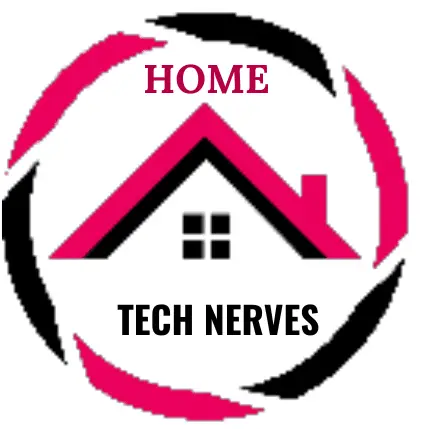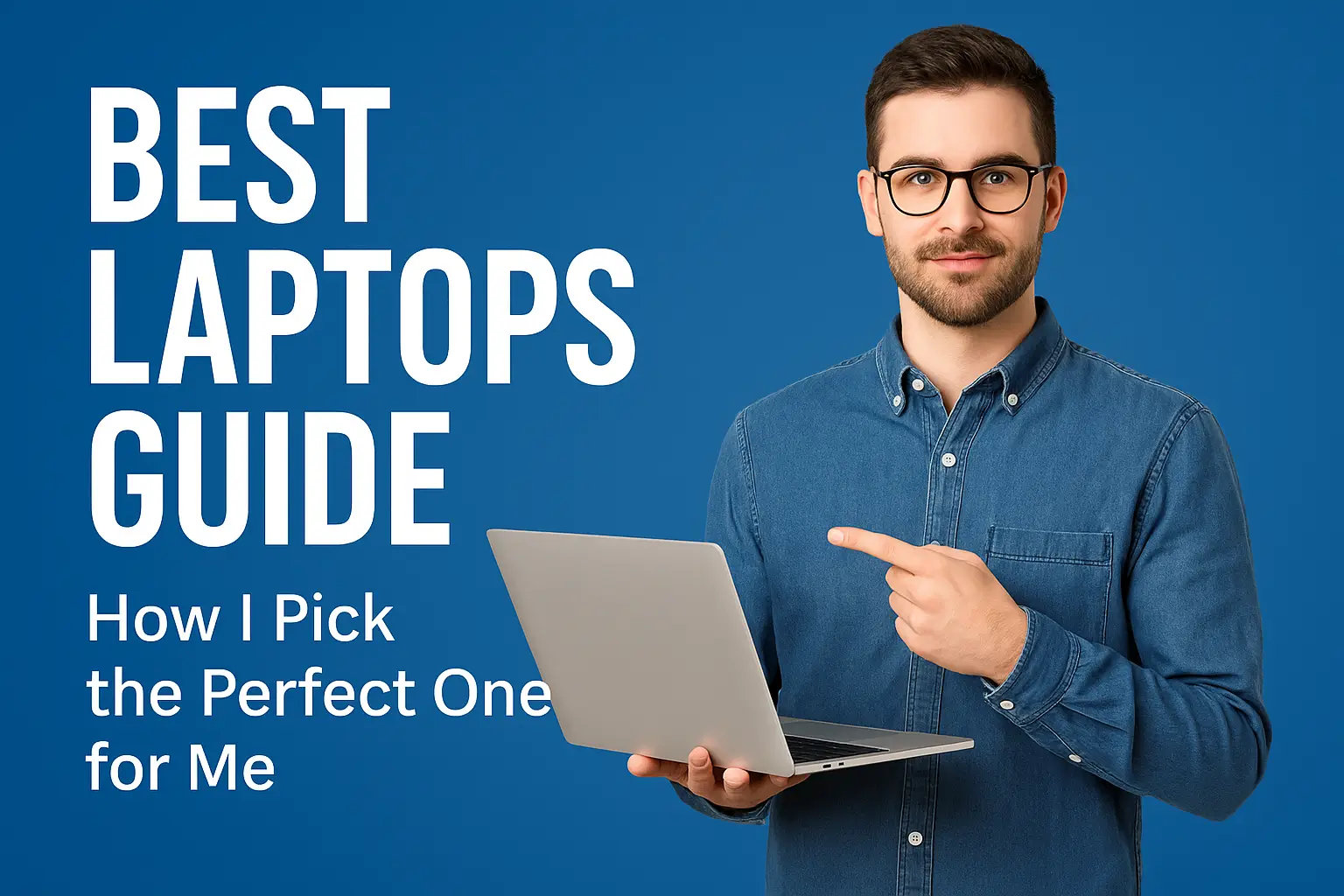I know how confusing it feels to pick the right laptop. I have been in that situation where every option looks good but none feels like the right choice.
That’s why I decided to make this guide. I keep things simple. I focus on what matters: performance, features, and use. I look at laptops the way you would—whether for study, work, gaming, or travel.
My goal is to save you time and help you choose with confidence. In this guide, I’ll share the best laptops for different needs, so you can find the one that truly fits you.
Read More: Laptops Guide: My Complete Step-by-Step Daily Companion
Table of Contents
Laptops Use Cases I Rely On for Work, Study, and Fun
I use laptops for different tasks in my daily routine. Each need has its own best fit.
For Students and Learners
When I studied, I needed a laptop that felt like a helper. I wanted something that was light, smooth, and reliable. For programming and computer science, I look for laptops with good processors and at least 16GB RAM.
Engineering students need a bit more power for software like AutoCAD. For general study, a thin and light laptop works best because it is easy to carry. Battery life matters too, especially during long lectures. My simple rule:
- Go for speed if you code.
- Go for balance if you study.
- Go for strength if you design or run heavy tools.
For Creators Like Me
When I create, I need a laptop that can keep up. Photoshop requires color accuracy and a bright screen. For video editing, I look for strong graphics and fast storage.
Streaming runs better on laptops with better cooling. Designers and content creators need long battery life and thin designs. Blender, music production, and recording demand power, so I always check for higher RAM and a good GPU.
I like to keep it simple when choosing:
- Photoshop → sharp display with good color range.
- Video editing → dedicated graphics and SSD.
- Streaming → reliable cooling and speed.
- Blender → GPU and multi-core processor.
- Music → fast processing and quality sound card.
A creator’s laptop must balance speed, graphics, and display. That’s what makes the work smooth and fun.
For Professionals Who Mean Business
Work laptops must handle more than emails. They must run smoothly all day. Business laptops need security, long battery, and durable build.
Accounting software works better on laptops with more RAM. For cyber security, I prefer a laptop with a strong processor and memory for running heavy scans.
Developers and software engineers need laptops that run multiple apps without slowing down. Architects use 3D software, so they need strong graphics.
Here’s how I see it:
- Business use → secure and lasting battery.
- Accounting → smooth processor and storage.
- Cyber security → multi-tasking with strong RAM.
- Developers → powerful CPU for coding.
- Architects → GPU and large screen.
- Engineers → strong all-rounder laptop.
I always remind myself: a professional laptop must support growth and stay reliable.
For Gamers and Travelers
Gaming and travel need different things, but both need speed. Gaming laptops should have high refresh rate screens, good graphics, and strong cooling.
They are heavier, but worth it for smooth play. Travel laptops must be light and slim. They need long battery life and durability.
Here’s my quick guide:
- Gaming → GPU, cooling, high refresh display.
- Travel → thin, light, and long-lasting battery.
I like gaming laptops for fun at home, but I carry lightweight models when I travel. Choosing depends on whether I plan to play or to move.
Read More: Laptops Use Cases I Rely On for Work, Study, and Fun
The Laptop Features I Look Out For
I like to focus on the features that really make a difference. These features save me from regret later.
- Touchscreen laptops: Perfect for notes, drawing, and flexible use. I enjoy them for study and creative tasks.
- High RAM and fast processors: These two decide speed. I never go below 16GB RAM and at least an i5 or Ryzen 5.
- Long battery life and performance: I always ask myself, can this last a whole day? A laptop with at least 8 hours battery is a must.
- Best graphics card laptops: Gaming, 3D design, or editing — GPU makes it smooth. NVIDIA RTX or similar always stand out.
These features help me find laptops that match both daily use and future needs.
Read More: Best Laptops Features: Top Picks I Recommend
Choosing the Right Buying Option for Me
Buying can feel confusing, so I keep a benchmark in mind. I trust Windows laptops as a strong choice. They give me wide options across brands, prices, and features. A Windows laptop works for study, work, gaming, and travel.
For me, the best buying tip is to compare use with budget. Once I match those two, the choice becomes simple.
My Personal Tips for Picking the Right Laptop
I like to keep laptop choices simple and clear. These tips always help me.
- Match laptop with career or hobby: I ask myself, do I need it for study, design, gaming, or travel? My use decides the specs.
- Don’t overspend on specs you don’t need: I avoid paying for high-end GPUs if I don’t play games.
- Balance portability with performance: If I carry my laptop daily, I choose light models with enough power.
- Future-proofing with RAM, storage, and upgradability: I always check if the laptop can be upgraded later.
Final Thoughts – Which One Is Best for You?
I see laptops as tools that fit different lives. Students need light and lasting models. Creators need graphics and speed. Professionals need secure, steady machines. Gamers need power, and travelers need thin builds.
Features, use, and budget work together to guide the choice. The best laptop is not the same for everyone. It is the one that matches your daily needs and long-term goals.
Ready to Find Your Perfect Laptop?
I built this guide to make your choice simple. Check the posts above, compare your needs, and pick the laptop that truly fits you today.
FAQs
What is the best laptop for students?
The best laptop for students is lightweight, budget-friendly, and lasts long on battery. I recommend at least 8GB RAM, SSD storage, and a reliable processor. It should handle assignments, online classes, and multitasking without slowing down, making study easier.
Do I need a graphics card for everyday use?
No, you don’t need a dedicated graphics card for everyday use. Basic tasks like browsing, streaming, or documents run smoothly on integrated graphics. But if you plan on gaming, 3D design, or video editing, a dedicated GPU makes performance much better.
How much RAM do I really need in a laptop?
For normal use, 8GB RAM is enough. Students and office users should start here. Creators, gamers, or programmers should go for 16GB or more. Higher RAM lets you run heavy apps, multitask smoothly, and future-proof your laptop for longer use.


